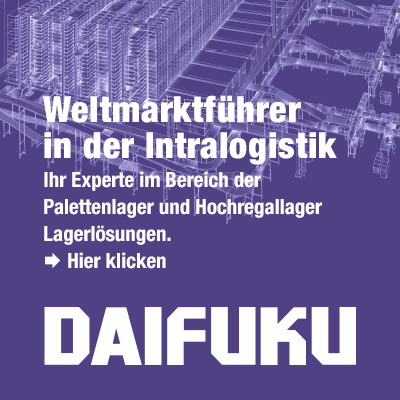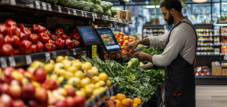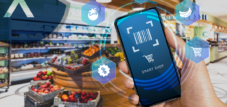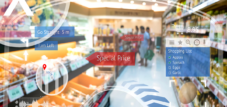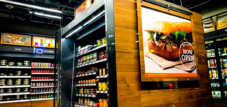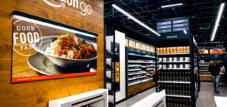GS1 DataMatrix: Pioneering 2D barcode in one-stop shops in Thailand – used in 12,000 7-Eleven convenience stores
Language selection 📢
Published on: December 20, 2024 / Update from: December 20, 2024 - Author: Konrad Wolfenstein
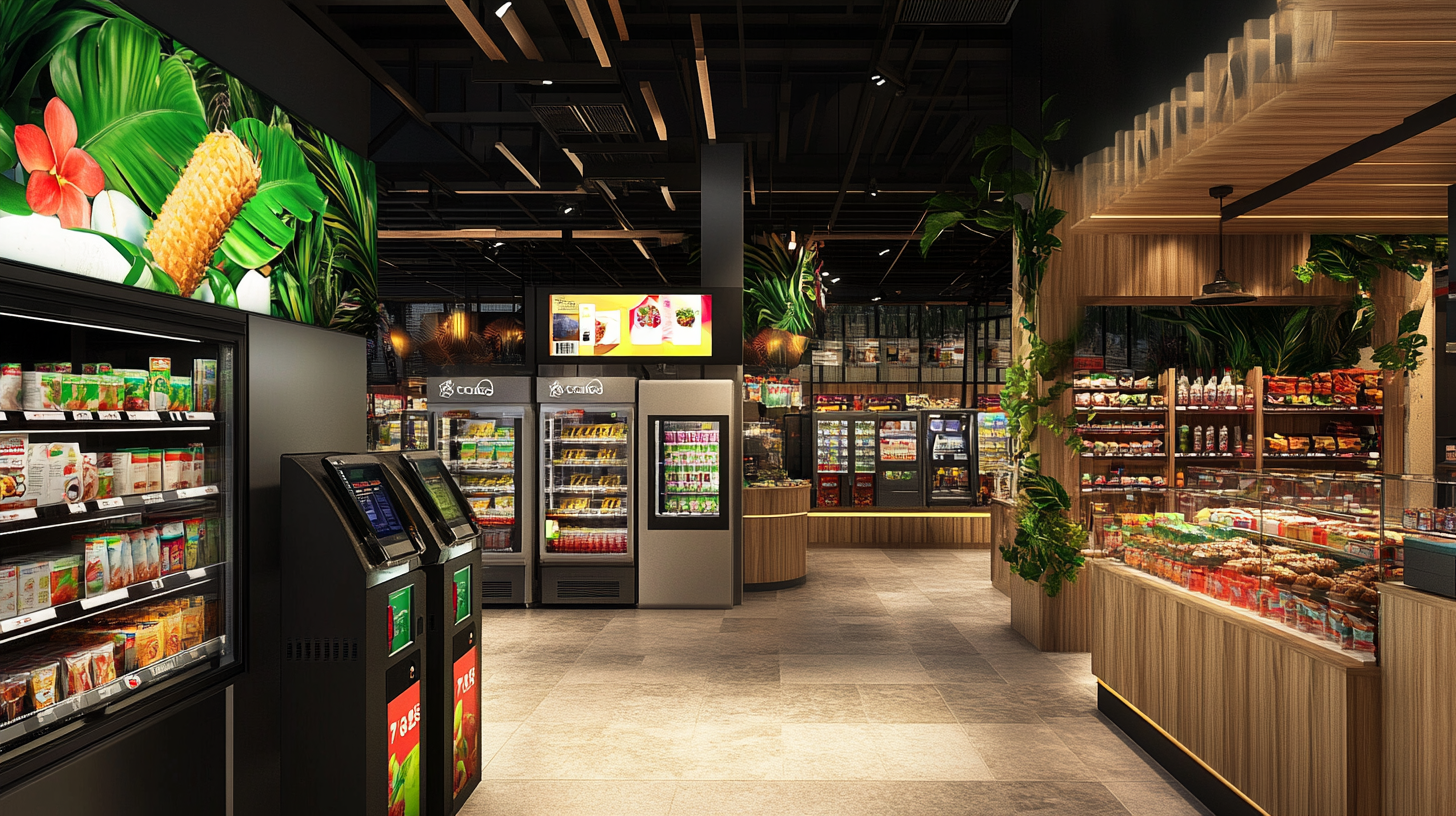
GS1 DataMatrix: Pioneering role of the 2D barcode in one-stop shops in Thailand - used in 12,000 7-Eleven convenience stores - Image: Xpert.Digital
📦🔍 GS1 DataMatrix: The 2D barcode revolution in Thai convenience stores
🚀💡 Innovative technologies at 7-Eleven: Efficiency and safety in city logistics
Rapid urbanization and the challenges of city logistics are at the heart of modern supply systems. The pioneers in this area are primarily Asian countries, especially Japan. Companies like Daifuku have set global standards when it comes to highly automated warehouse and logistics systems. These technologies play a central role in urban supply logistics, especially with regard to courier, express and parcel services as well as last mile logistics.
A crucial aspect of this logistics is the so-called “last mile” – delivery from the distribution center to the end customer. This part of the supply chain is particularly complex and cost-intensive due to its high organizational effort. To overcome these challenges, companies are developing innovative approaches such as micro-hubs, local and decentralized logistics centers and autonomous retail concepts.
🏪🛒 The importance of convenience stores in urban logistics
At the center of these developments are convenience shops, also known as “Konbinis”. These small retail stores are a combination of neighborhood stores and mini markets. There are around 50,000 such konbinis in Japan, including well-known names such as FamilyMart, Lawson, NewDays and Ministop. The market leader 7-Eleven has more than 50,000 employees in Japan alone and generates sales of 35 billion euros.
Suitable for:
- Local decentralized hubs – logistics centers
- Smart shopping business models: 30 innovative ideas and variants that have emerged around the new shopping in recent years
7-Eleven also has a strong market presence in Thailand. With over 12,000 branches, the company is a central player in supplying the urban population. The expiry dates of ready-to-eat meals and “grab-and-go” items represent one of the biggest challenges. Manually checking the best-before dates is time-consuming, error-prone and inefficient. This is exactly where a groundbreaking innovation comes in: the GS1 DataMatrix code.
📊📦 The use of the GS1 DataMatrix at 7-Eleven in Thailand
Since the beginning of 2023, around 100 finished products in Thai 7-Eleven stores have had a GS1 DataMatrix on the packaging. This two-dimensional barcode contains information such as the best-before date and other product data. The cashiers are equipped with scanners that read this data and control the sales process.
Suitable for:
🔄⚡ Automated quality assurance
When you scan a product that has exceeded its best-before date, a warning message appears on the cash register display. This instructs the cashier to remove the product from the range and offer the customer a new one. Not only is this process more efficient, but it also significantly reduces human errors.
Chakrit Hengsirikul, head of research and knowledge unit at 7-Eleven Thailand, explains: “Our quality assurance processes have become both stronger and simpler. We save time, simplify store operations, make our inventory management processes more efficient and, most importantly, no longer end up with products in our consumers’ kitchens past their best-before date.”
Suitable for:
😊🔒 Improved customer satisfaction and increased security
The impact of this technology is remarkable. Complaints about expired products fell to zero, and customers reported feeling more confident purchasing prepared meals and other groceries. This increase in trust has significantly increased customer satisfaction and established 7-Eleven as a leader in food safety.
📈🔍 Expansion to additional product categories
Given its success, 7-Eleven plans to expand the use of the GS1 DataMatrix to additional product categories and suppliers. The technology is expected to play an even more central role in the future, particularly for own-brand products such as baked goods. The aim is to make the entire supply chain more efficient and sustainable.
⚙️💰 Increased efficiency and reduced costs
In addition to improving food safety, the GS1 DataMatrix also offers significant economic benefits. Through the automated monitoring of expiry dates, logistical processes can be accelerated and warehousing can be optimized. Products that are close to their expiration date can be targeted or discounted, leading to a reduction in food waste. These increases in efficiency are particularly important in fresh and refrigerated logistics, where a shortage of skilled workers and cost pressure represent a major challenge.
🌱♻️ Sustainability and environmental protection
Reducing food waste not only helps reduce costs but also has a positive impact on the environment. Every product that is not wasted saves resources such as water, energy and transport costs. This is an important step towards greater sustainability in the food industry.
📦🤖 Technological advances in logistics
The GS1 DataMatrix is an example of how digital technologies are revolutionizing logistics. These barcodes can store far more information than traditional EAN codes and have a wide range of applications - from supply chain tracking to automated inventory monitoring. The integration of such technologies enables companies to react more quickly to market changes and ensure their competitiveness.
💡🌍 A model for the future
The use of the GS1 DataMatrix at 7-Eleven in Thailand shows how technology can increase efficiency and safety in the food industry. The positive effects range from increased customer satisfaction to more sustainable use of resources. This model could also be used in other countries and industries in the future and thus contribute to the further development of global logistics.
With such innovations, 7-Eleven proves once again that it is not only a retail giant, but also a pioneer in the application of modern technologies. The introduction of the GS1 DataMatrix is a milestone that paves the way for further advances in urban logistics. This success story could be a blueprint for other companies that want to make their processes more efficient and sustainable.
Suitable for:
📣 Similar topics
- 📦 The future of city logistics: How 7-Eleven is increasing efficiency
- 🛒 GS1 DataMatrix: The intelligent solution for 7-Eleven Thailand
- 🤖 Automation at 7-Eleven: Quality through technology
- 🌱 Sustainability through innovation: Minimize food waste
- 🚀 Technology revolution in retail: 7-Eleven is leading the way
- 🕒 Efficiency in the last mile: Micro-Hubs and DataMatrix technology
- 📊 GS1 DataMatrix: An advantage for customers and companies
- 💡 How digital logistics solutions optimize supply
- 🔒 Security and trust: New standards in food retail
- 🌍 Sustainable logistics through reduced food waste
#️⃣ Hashtags: #Technology #Food Safety #SmartLogistics #Sustainability #GS1DataMatrix
Xpert partner in warehouse planning and construction
🚚📦 Urbanization and Logistics: How modern technologies like GS1's 2D matrix code are transforming retail
🏙️ Growing urbanization – a challenge for city logistics
Increasing urbanization, the growth of cities and changes in consumer behavior are constantly presenting modern logistics with new challenges. Innovative concepts in urban and supply logistics have been gaining ground for many years, especially in highly dense areas where space is limited, traffic is intensive and customer demands are high. In this context, Asian markets in particular, especially Japan, developed early solutions to establish the most efficient, flexible and scalable supply chain possible. Japanese companies have long been considered leaders in the field of intralogistics: highly automated storage systems, sophisticated pallet storage structures and highly developed refrigerated logistics are just as key elements as the well-thought-out infrastructure for so-called “last mile logistics”.
Suitable for:
🏪 Convenience shops and their contribution to the urban logistics chain
In this area of tension in urban supply, so-called convenience shops, known as “konbinis” in Japan, play a crucial role. These small neighborhood shops, which exist in a similar form in many countries - in Germany and Switzerland as corner shops, in Austria as Greißler - serve as microcosms of a comprehensive urban logistics solution. With a wide but compact range and long opening hours, they represent a kind of one-stop shop for quick needs. There are around 50,000 of these konbinis in Japan, including well-known brands such as FamilyMart, Lawson, New Days, Ministop and, above all, the giant 7-Eleven. This company, with sales of tens of billions of euros and tens of thousands of employees, is one of the global pioneers when it comes to integrating new technologies to ensure quality, freshness and efficiency along the entire supply chain.
Suitable for:
🛡️ Quality control as the key to customer satisfaction
Urban supply logistics not only revolves around the availability of products, but also their quality assurance. Particularly sensitive in this context is the handling of ready-to-eat meals and “grab-and-go” items, which are very popular with customers due to their speed and convenience. But the more extensive the range and the shorter the shelf life windows, the more urgent the need to precisely control expiry dates becomes. Even a single expired product on a shelf can not only lead to health and safety risks for consumers, but can also damage trust in the brand and the store itself. This challenge is even greater when you consider that manually checking best-before dates in thousands of branches requires enormous human and organizational effort.
To address exactly this problem, 7-Eleven in Thailand launched a pioneering project a few years ago in collaboration with GS1 Thailand: the introduction of the GS1 DataMatrix code as a standardized 2D barcode (2D matrix code) on selected products. Around a hundred ready-made products offered in over 12,000 Thai 7-Eleven stores now have this small but information-rich code on the packaging. The GS1 DataMatrix serves as a central data element in which, in addition to the item identification, the best-before date is also clearly coded.
🛒 Automation in the store – step by step to success
This significantly simplifies the process in the store: When the product is scanned at the checkout, the cash register systems automatically check whether the stored best-before date has already been reached or exceeded. If this is the case, the cashier immediately receives a message on the screen that this product cannot be sold. The instruction to the staff then reads: “Please immediately replace the expired product with a fresh one and take the expired product off the shelf immediately.” In this way, the risk of expired goods reaching the customer is drastically reduced. Customer complaints in this context have practically fallen to zero. The relationship of trust between the buyer and the retailer is strengthened because the customer can now be sure that he will always receive flawless, fresh products.
🌿 Sustainability and efficiency – a win for everyone involved
The increased efficiency also has a long-term impact on the company's cost situation. Less time spent on manual checks means fewer human resources dedicated to this activity or more time on value-added tasks. In addition, fewer goods pass unnoticed, which in turn reduces waste and minimizes losses. This has a positive effect on the sustainability and ecological balance of the company, particularly for perishable products that are involved in refrigerated and fresh logistics processes. Less waste means less waste of resources, less transport of unusable goods, less energy consumption and ultimately a contribution to environmental protection.
💡 Future outlook – From Thailand to the whole world?
In the future, 7-Eleven Thailand plans to significantly expand the field of application of the GS1 DataMatrix barcode. Other product categories and product types will also be provided with these codes in the future. The focus is also on private label baked goods in order to apply the advantages of automated best-before date testing even more broadly. This step underlines the strategic decision to establish the use of intelligent identification and control systems as a standard in the trading environment.
🤖 Digitalization meets traditional trading concepts
Looking at the bigger picture, it is clear that these measures are part of a broader retail transformation. Global megatrends such as urbanization, networking and digitalization mean that retailers have to find new ways to supply their customers efficiently, safely and reliably. In many countries, micro-hubs, local fulfillment centers, smart shopping models and autonomous retail systems are already seen as visions of the future of city logistics. The introduction of advanced barcodes is just one building block in a larger picture where technology and retail are merging.
📊 Data as a strategic advantage – opportunities and possibilities
Another positive effect is the increase in data quality and data availability. Since the GS1 DataMatrix can store much more information than a conventional one-dimensional barcode, it opens up extensive possibilities for analysis and process optimization. Companies can use the collected data to draw conclusions about consumption habits, fluctuations in demand, seasonal characteristics and much more. With these insights, inventories can be controlled more precisely, supply chains can be kept leaner, just-in-time concepts can be refined and, ultimately, the entire value chain can be planned better.
🚀 7-Eleven as a pioneer in urban logistics
It is obvious that this approach will become more widespread in the future. Standardization via GS1 enables this principle to be expanded worldwide, the technical barrier is relatively low and the added value for dealers and customers is obvious. What already works successfully in over 12,000 Thai 7-Eleven stores could also establish itself in other regions in the medium term. By taking on a pioneering role, retail chains create trust, win new customers, bind regular customers more closely to them and at the same time show that they act not only economically but also socially responsibly.
📣 Similar topics
- 📌 Digitalization as a driver of innovation in urban logistics
- 🚛 GS1 DataMatrix: The unsung hero of modern supply chains
- 🏪 Konbinis and convenience shops: future of urban local supplies?
- 🧊 High automation meets refrigerated logistics: lessons from Japan
- 🍱 Fresh, convenient & safe: revolution in food logistics
- 💡 How 2D barcodes are transforming urban logistics
- ♻️ Sustainability through technology: reducing waste in retail
- 💻 Intelligent cash register systems: Freshness guaranteed at the touch of a button
- 🌐 Global standards in logistics: What the GS1 DataMatrix Code can achieve
- 🤝 Digitalization and consumer trust: A new trading strategy
#️⃣ Hashtags: #LogistikRevolution #DigitalTrade #Supply ChainOptimization #Sustainability #ConvenienceStores
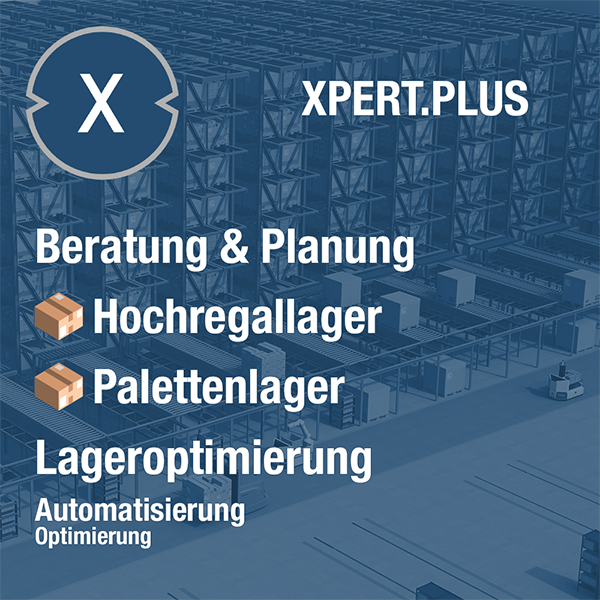
Xpert.Plus warehouse optimization - high-bay warehouses such as pallet warehouses consulting and planning
We are there for you - advice - planning - implementation - project management
☑️ SME support in strategy, consulting, planning and implementation
☑️ Creation or realignment of the digital strategy and digitalization
☑️ Expansion and optimization of international sales processes
☑️ Global & Digital B2B trading platforms
☑️ Pioneer Business Development
I would be happy to serve as your personal advisor.
You can contact me by filling out the contact form below or simply call me on +49 89 89 674 804 (Munich) .
I'm looking forward to our joint project.
Xpert.Digital - Konrad Wolfenstein
Xpert.Digital is a hub for industry with a focus on digitalization, mechanical engineering, logistics/intralogistics and photovoltaics.
With our 360° business development solution, we support well-known companies from new business to after sales.
Market intelligence, smarketing, marketing automation, content development, PR, mail campaigns, personalized social media and lead nurturing are part of our digital tools.
You can find out more at: www.xpert.digital - www.xpert.solar - www.xpert.plus



